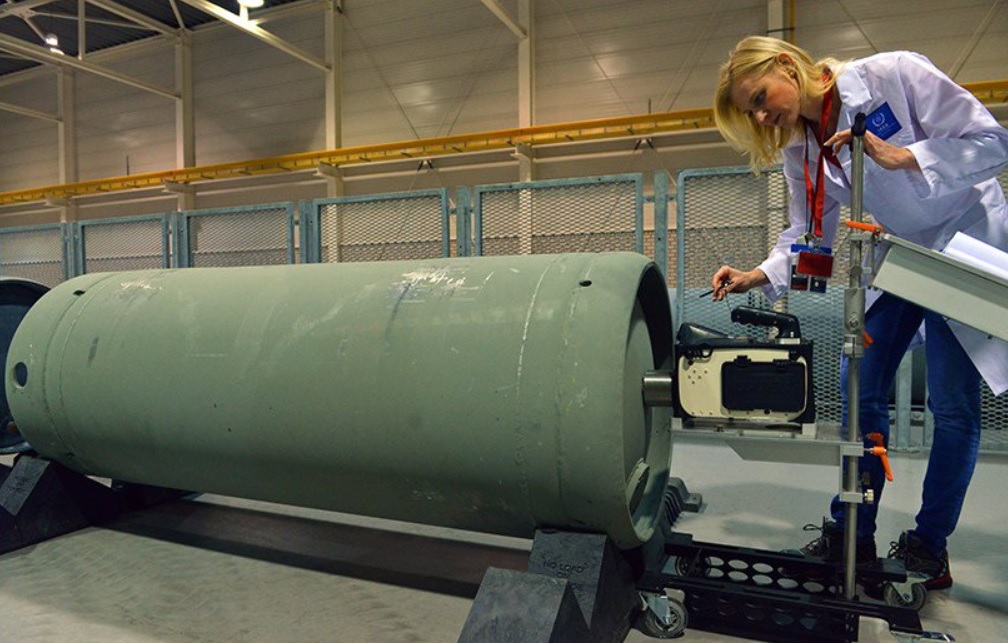IAEA Completes Nuclear Security Advisory Mission in France
The team observed that the nuclear security regime in France is robust and well-established.

- Country:
- France
An International Atomic Energy Agency (IAEA) team of experts completed a nuclear security advisory mission in France. The mission was carried out at the request of the French Government.
The scope of the two-week International Physical Protection Advisory Service (IPPAS) follow-up mission included France’s responses to the recommendations of the initial mission in 2011, the regulatory framework for the security of nuclear material and facilities as well as computer security. The IPPAS team also reviewed the country’s implementation of the 2005 Amendment to the Convention on the Physical Protection of Nuclear Material (CPPNM). As part of the review, the team visited the Georges Besse II uranium enrichment plant at the Tricastin nuclear site in Pierrelatte, south-eastern France.
The team observed that the nuclear security regime in France is robust and well-established, and incorporates the fundamental principles of the amended CPPNM. The team provided recommendations and suggestions to support France in enhancing and sustaining nuclear security. Good practices were identified that can serve as examples to other IAEA Member States to help strengthen their nuclear security activities.
#IAEA completes nuclear security advisory mission in #France 🇫🇷 https://t.co/v9p0Svitup
— IAEA (@iaeaorg) March 23, 2018
The team was led by Steve Skelton, Principal Inspector at the Office for Nuclear Regulation of the United Kingdom, and included eight other experts from Belgium, Finland, Germany, Hungary, Lithuania, Netherlands and the IAEA. The team met in Paris with officials from the Ministry for an Ecological and Solidary Transition (MTES), the General Secretariat for Defence and National Security, the Ministry of Interior, the Ministry of Armed Forces, the National Cybersecurity Agency and other relevant organizations. During the nuclear site visit, the team also met with representatives of a nuclear energy company, Orano, the Prefect of Drôme department as well as the command officer of its departmental Gendarmerie, who briefed them on emergency planning and implementation.
“France clearly demonstrated its strong commitment to nuclear security and its continuous enhancement through applying IAEA nuclear security guidance documents and using IAEA nuclear security advisory services,” said Raja Adnan, Director of IAEA’s Division of Nuclear Security at the closing of the Mission.
“IPPAS missions are an important tool in strengthening global nuclear security, and the advice provided will enable France to continue implementing the highest nuclear security standards,” said Régine Engström, the General Secretary, High Official for Defence and Security at MTES. “Although France’s nuclear security is already considered to be robust, I greatly appreciate the input of the experts in the IPPAS mission providing their recommendations for further improvement. With nuclear security there is no room for complacency.”
Background
The mission was the 83rd IPPAS mission conducted by the IAEA since the programme began in 1995.
IPPAS missions are intended to assist States in strengthening their national nuclear security regime. The missions provide peer advice on implementing international instruments, along with IAEA guidance on the protection of nuclear and other radioactive material and associated facilities.
During missions, a team of international experts observes a nation's system of physical protection, compares it with international good practices and makes recommendations for improvement. IPPAS missions are conducted both on a nationwide and facility-specific basis.
(This is a reproduced IAEA news as it is. Devdiscourse bears no responsibility towards grammatical or factual errors that may have been presented in the report.)










